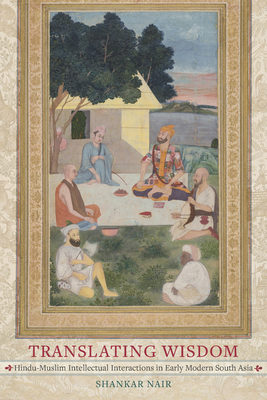

 University of California Press
University of California Press
Translating Wisdom: Hindu-Muslim Intellectual Interactions in Early Modern South Asia


Key Metrics
- Shankar Nair
- University of California Press
- Paperback
- 9780520345683
- 8.9 X 6 X 0.9 inches
- 0.88 pounds
- History > Asia - India & South Asia
- English
 Secure Transaction
Secure TransactionBook Description
A free open access ebook is available upon publication. Learn more at www.luminosoa.org.
During the height of Muslim power in Mughal South Asia, Hindu and Muslim scholars worked collaboratively to translate a large body of Hindu Sanskrit texts into the Persian language. Translating Wisdom reconstructs the intellectual processes and exchanges that underlay these translations. Using as a case study the 1597 Persian rendition of the Yoga-Vasistha--an influential Sanskrit philosophical tale whose popularity stretched across the subcontinent--Shankar Nair illustrates how these early modern Muslim and Hindu scholars drew upon their respective religious, philosophical, and literary traditions to forge a common vocabulary through which to understand one another. These scholars thus achieved, Nair argues, a nuanced cultural exchange and interreligious and cross-philosophical dialogue significant not only to South Asia's past but also its present.
Author Bio
My general field of interest is the religious and intellectual history of the Indian subcontinent, particularly as it relates to broader traditions of Sufism and Islamic philosophy, Qur'anic exegesis, and Hindu philosophy and theology (especially Advaita Vedanta and other forms of Hindu non-dualism).
My research to date has centered upon Muslim-Hindu interactions and the encounter between Arabic, Sanskrit, and Persian intellectual cultures in early modern (Mughal) South Asia. Broadly speaking, I am interested in how Muslim and Hindu philosophers, theologians, and mystics interacted with one another, and the ways in which these figures conceptualized and responded to the fact of religious diversity in the world around them. I am especially interested in the phenomenon of translation, as we find numerous Sanskrit texts being translated into Persian and Arabic in this time period, often the result of teams of Muslim and Hindu scholars working in tandem. In my future research, I aim to trace the continuing history of such interactions into the colonial and modern periods.
A few of my other teaching and research interests include Sufi poetry and didactic literature, Sanskrit aesthetics and literary theory, Indian vernacular literatures, and classical Islamic ethics.
Source: University of Virginia - Arts & Sciences
Videos


Community reviews
Write a ReviewNo Community reviews